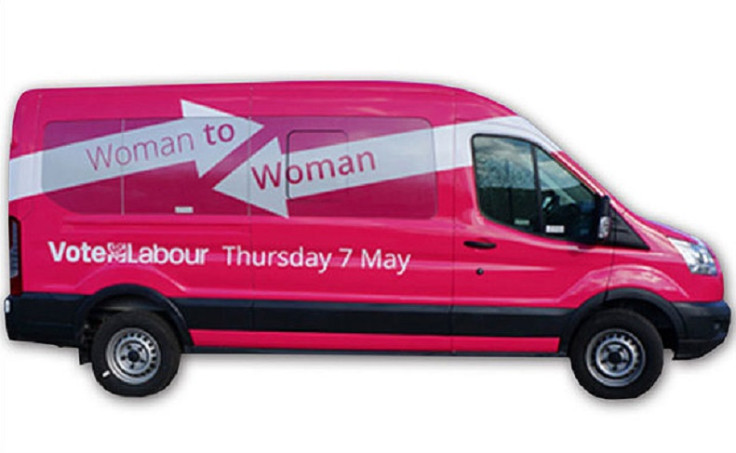All aboard Labour's 'Barbie bus': The pink van 'woman to woman' campaign is a car crash

Nothing says female involvement in politics more than a pink 16-seater minibus to talk to women "around the kitchen table". Misguided at best, Labour's 'Barbie bus' is the party's latest effort to win over female voters in marginal constituencies - but it is hardly going to woo the nine million women who failed to vote in the last general election.
The "woman-to-woman" tour of 70 constituencies will focus on five crucial areas that Labour will push as key issues to women: childcare, social care, domestic violence, equal pay and political representation. Staunchly defended by Labour's Deputy Leader Harriet Harman, the bus will engage with women outside school gates, in shopping centres and, finally, in work places.
Considering toddlers are pointing out gender bias in Toys R Us, it seems slightly ridiculous that after much deliberation over the colour of the minibus, Labour selected pink to persuade disillusioned female voters that politics is not just a "men-only" activity.
"We wanted it to be conspicuous," Harman said, pointing out that a darker red looked like a Pret a Manger van. There was some discussion over the precise colour at the launch: the Shadow Minister for Women and Equalities Gloria De Piero MP thinks it is "cerise"; Harman says "magenta". But how about we have a conversation about gender inequality without a pink princess theme, for once? It is patronising and trivialises key issues that need to be pushed forward.
The five agendas that the Barbie bus will seek to address are fundamental, but the problem of promoting them solely as "women's problems" is that they irrefutably involve men. To really address domestic violence, we need to tackle the problem at the source – patriarchal traditions that encourage the misuse of power and control within a context of male privilege. The same goes for equal pay.
Forty years after the Equal Pay Act came into force in the UK, women still face a stark gap in their earnings compared to men – in part, because outdated stereotypes around men's and women's value in the workplace still exist. Men still dominate the upper ranks of boardrooms in Britain, with women accounting for fewer than one in 25 chief executives. Toddling around the UK in a magenta – sorry, cerise – princess bus will do nothing to upend the gender stereotypes that cement inequality in the UK.
Female representation in UK politics is indeed dire. There are currently only 48 women to 254 men in the Conservative party in the House of Commons – and 148 women and 502 men in the chamber overall. Since Nancy Astor became the first female MP to sit in the Commons in 1918, there have only been 370.
Women make up half of the British population, but they are represented by just five out of 22 people in Cameron's Cabinet. It is hardly surprising that women have shown a greater disaffection in politics than men, but it will take more than a gimmicky pink bus to solve that problem.
All parties are battling for the female vote in May's election, after a TNS poll for BBC Radio 4's Woman's Hour found 35% of women remained undecided compared to 25% of men. In April, Labour will launch a long-overdue first separate "women's manifesto", which includes 25 hours of free childcare for working parents of three and four-year-olds. It will also enforce companies with more than 250 workers to publish the "hourly pay gap" between the sexes in their annual report, and will prioritise tackling domestic and sexual violence against women.
Harman is right that women "have not made all the progress we need" – but a pink bus isn't going to encourage women not to abandon politics, nor will it encourage men that women's issues are their issues too.
© Copyright IBTimes 2024. All rights reserved.






